Navigating the complex world of food and beverage regulations can feel overwhelming, but it doesn't have to be! Whether you're launching a new product, dealing with compliance issues, or simply trying to stay informed on the latest legal updates, having the right guidance is crucial. Understanding the ins and outs of food safety laws and labeling requirements can make all the difference for your business. Ready to dive deeper into this essential topic? Let's explore together!
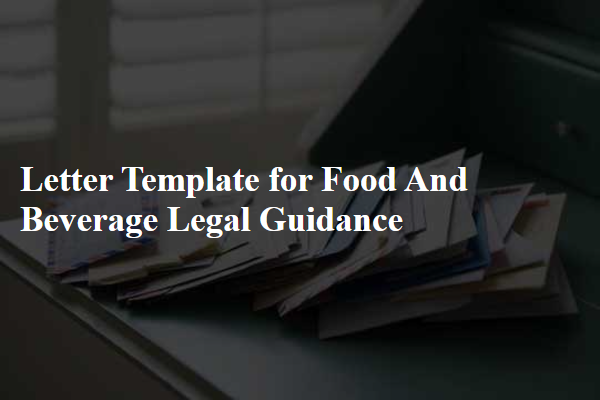
Regulatory compliance requirements
Food and beverage industries face strict regulatory compliance requirements governed by agencies such as the Food and Drug Administration (FDA) in the United States. Regulations include adherence to the Federal Food, Drug, and Cosmetic Act, which establishes standards for food safety, labeling, and health claims. Additionally, manufacturers must comply with Hazard Analysis and Critical Control Points (HACCP) guidelines to ensure food safety during production. State-level regulations may also impose specific licensing and reporting requirements, such as those mandated by the Department of Health. Packaging materials must meet safety standards outlined by the FDA, including restrictions on certain chemicals. Regular inspections and audits by local health departments further ensure compliance with sanitation and quality control protocols. Failure to comply can result in significant penalties, product recalls, or legal action, underscoring the importance of thorough legal guidance in navigating these complex regulations.
Labeling and packaging standards
Food and beverage companies face strict regulations regarding labeling and packaging standards, governed by entities such as the Food and Drug Administration (FDA) in the United States. Accurate ingredient listings are required for consumer transparency, including allergens like peanuts or gluten, which affect approximately 32 million Americans. Nutrition facts must follow specific formats, detailing calories, fat content, and serving sizes, relevant to daily recommended values based on a 2,000-calorie diet. Packaging must be compliant with environmental regulations, such as the Resource Conservation and Recovery Act (RCRA), which promotes sustainability in materials used. Misleading claims can lead to severe penalties, with fines reaching thousands of dollars, emphasizing the importance of legal compliance. The importance of clear expiration dates to ensure food safety and consumer health cannot be understated, impacting millions of households. Understanding these standards is critical for successful market entry and consumer trust.
Health and safety regulations
Food and beverage establishments must adhere to stringent health and safety regulations established by organizations such as the FDA (Food and Drug Administration) and local health departments. Compliance with these regulations, including the Food Safety Modernization Act (FSMA), is essential to prevent foodborne illnesses that affect millions of Americans annually. Key components include proper food handling practices, temperature control (keeping hot foods above 140 degrees Fahrenheit and cold foods below 40 degrees Fahrenheit), and regular sanitation of surfaces. Additionally, maintaining employee hygiene, such as frequent handwashing and appropriate food safety training, is crucial to uphold health standards. Establishments should also consider local laws that may impose stricter guidelines, making it vital to stay updated on both federal and state regulations.
Intellectual property considerations
Food and beverage businesses must navigate intricate intellectual property (IP) considerations to protect unique products and branding. Trademarks, such as logos and brand names, are vital for distinguishing goods in a competitive market, protecting the identity of companies like Coca-Cola and Starbucks. Copyright laws safeguard original recipes, marketing materials, and artistic packaging designs, while patents can protect novel food processes or technological innovations. Regulatory frameworks, such as the United States Patent and Trademark Office guidelines, govern IP registration and protection, making it crucial for businesses to engage with legal experts specializing in food and beverage law. Awareness of international treaties, such as the TRIPS Agreement, also plays a role in safeguarding IP across borders, ensuring global protection for brands and products in an increasingly interconnected marketplace.
Contractual obligations and licensing agreements
Food and beverage businesses, such as restaurants and breweries, must navigate complex legal frameworks concerning contractual obligations and licensing agreements. These contracts govern critical aspects like supplier relationships, distribution rights, and sales terms, ensuring compliance with local regulations. Licensing agreements, including those for alcohol sales, must adhere to state-specific laws, often requiring permits from agencies like the Alcohol and Tobacco Tax and Trade Bureau (TTB) in the United States. Non-compliance can lead to fines or loss of licenses, significantly impacting business operations. Furthermore, understanding terms such as "force majeure" clauses can protect businesses from unforeseen events, such as pandemics or natural disasters, that disrupt supply chains and service capabilities. Legal guidance is essential in crafting these documents to mitigate risks and uphold regulatory standards.
Letter Template For Food And Beverage Legal Guidance Samples
Letter template of legal consultation request for food and beverage regulations
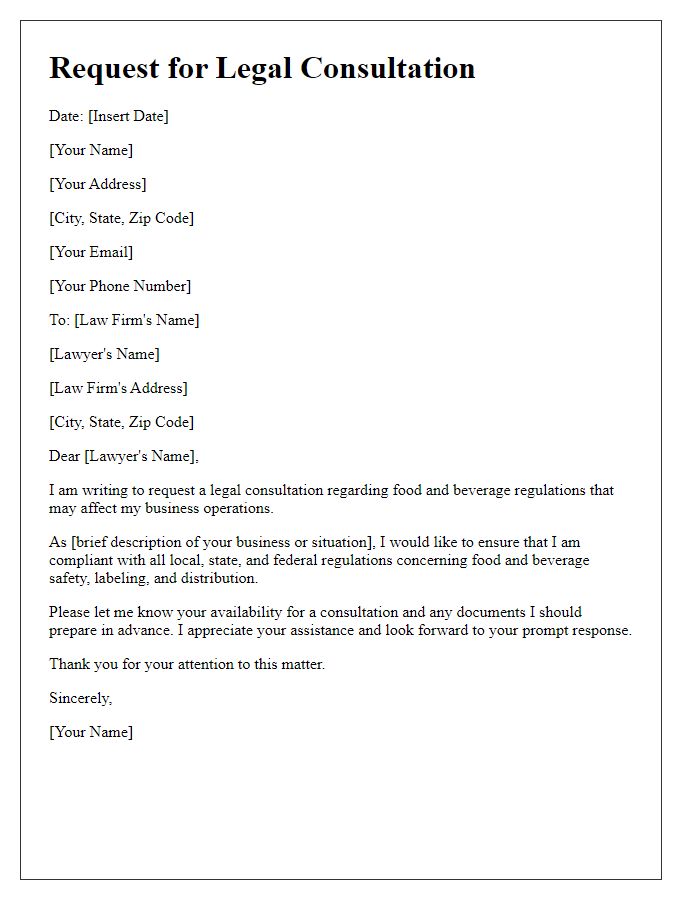

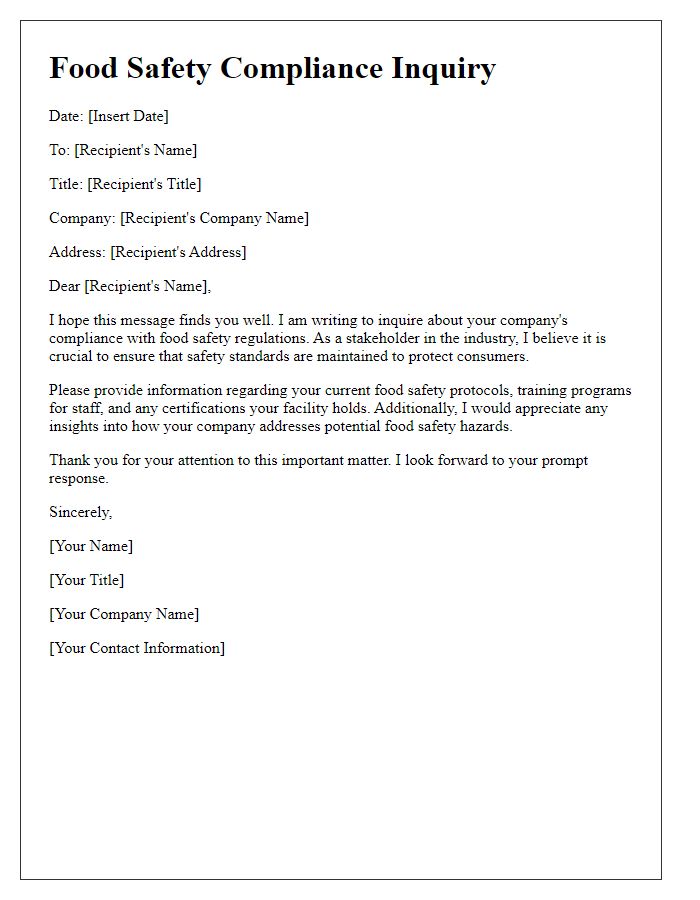
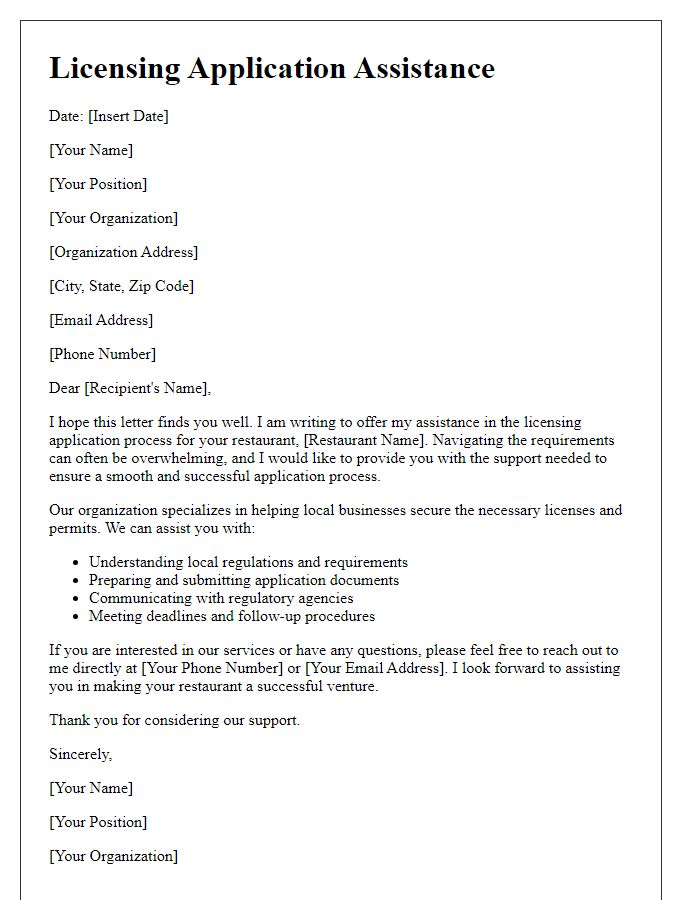
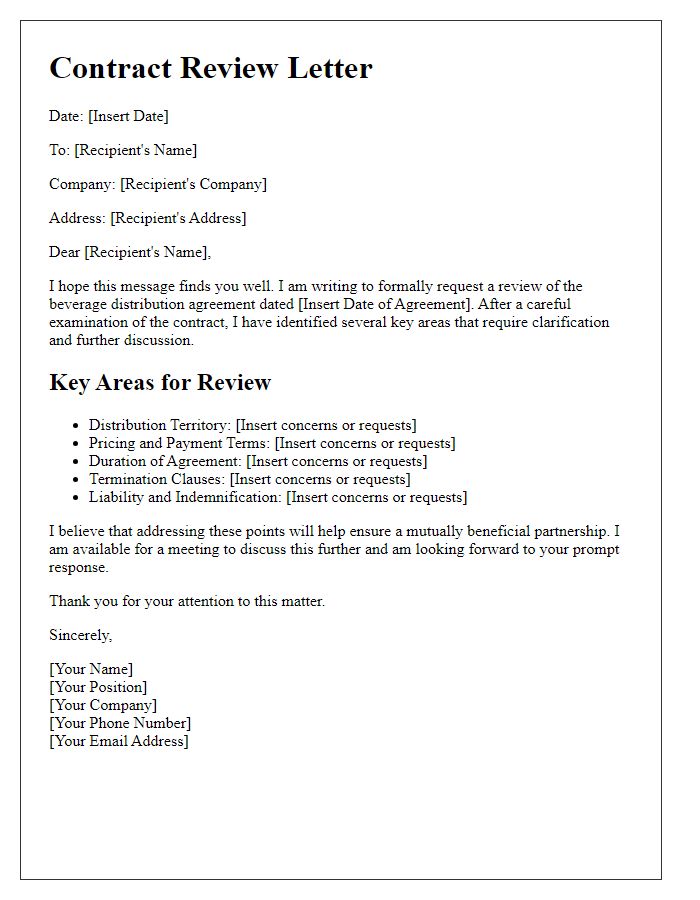
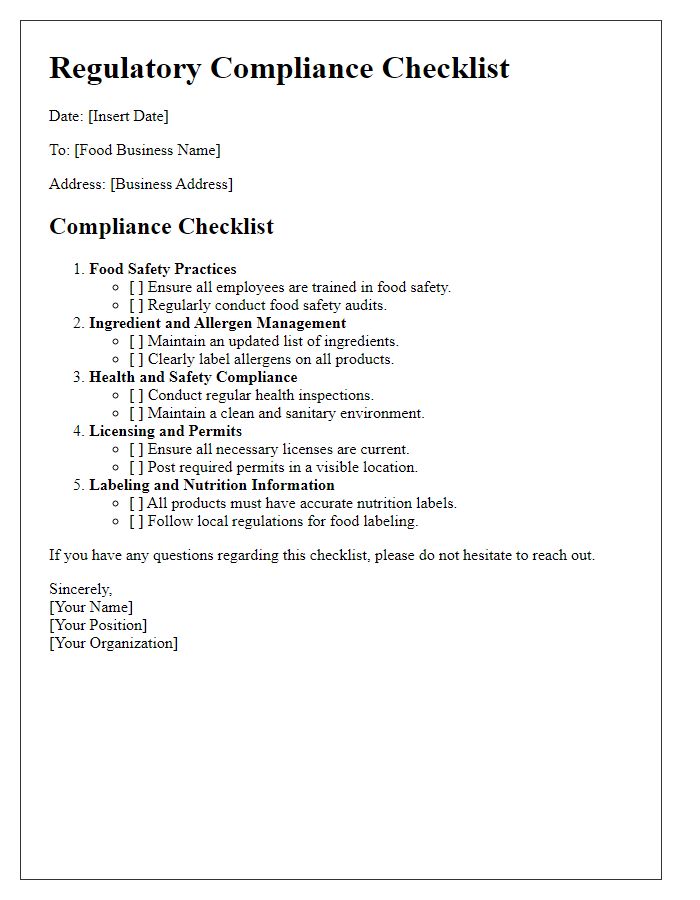
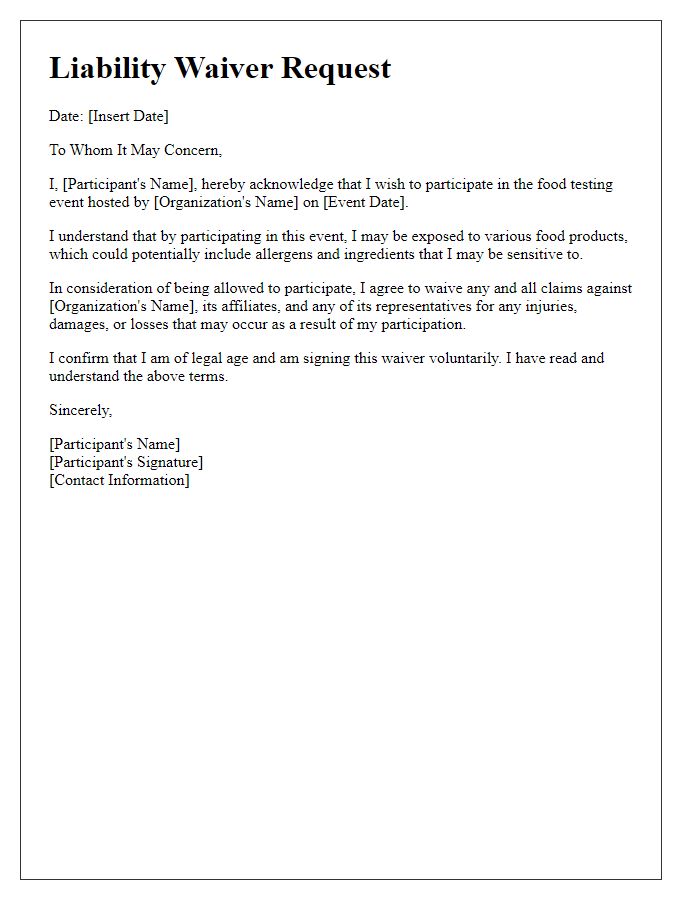
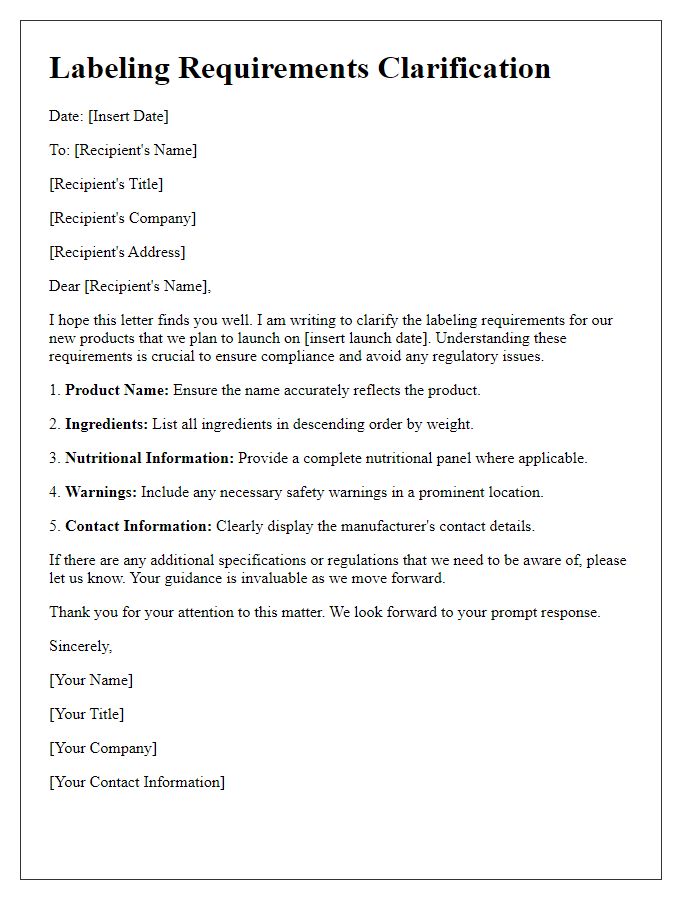
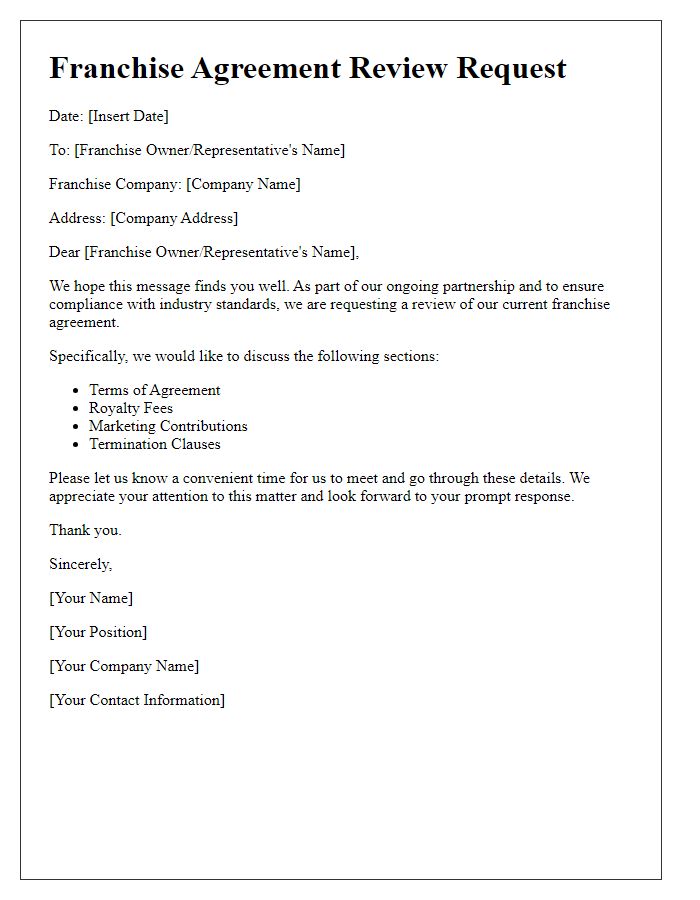
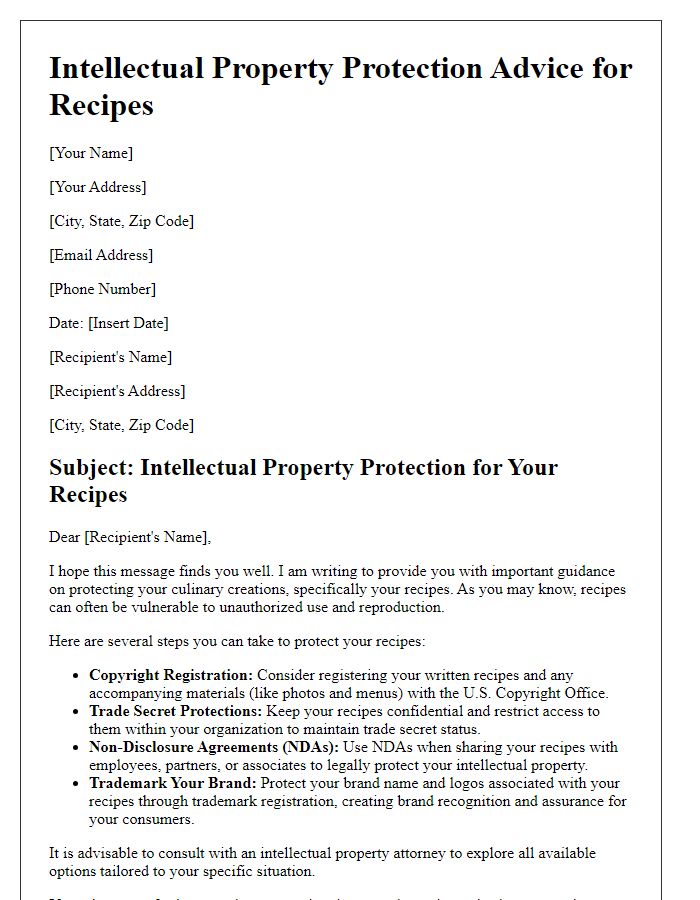
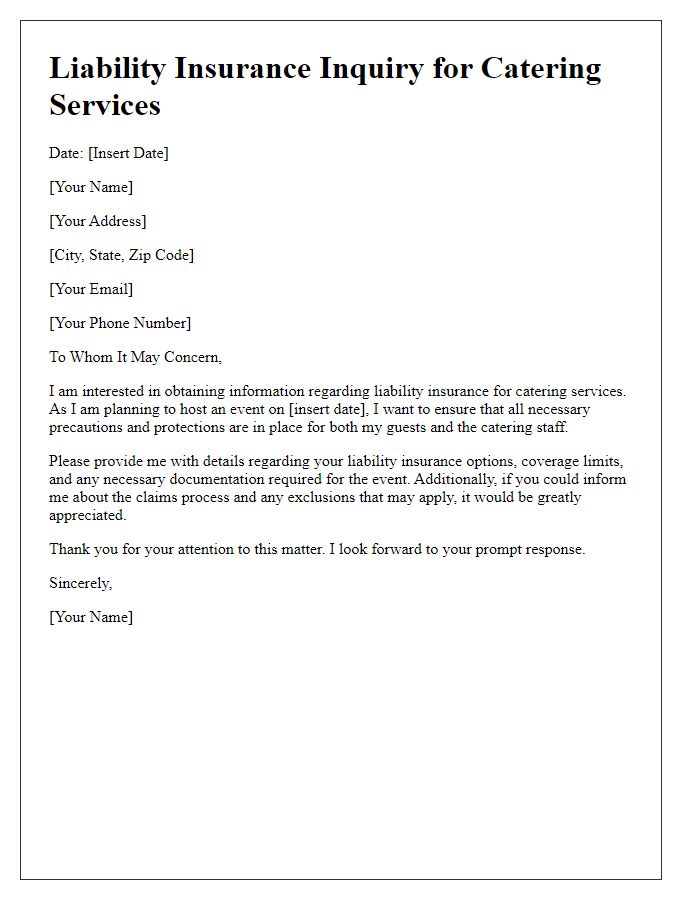


Comments